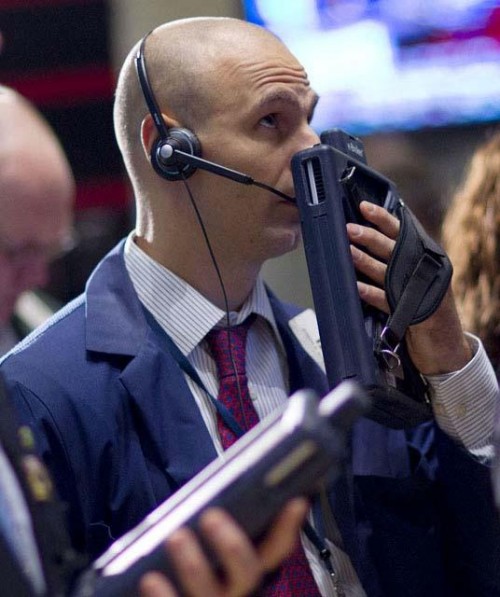Stocks of Local Interest
August 15, 2011
Lillian Callais
August 17, 2011Politics and finances have made a bad mix, according to economic experts, and depending on one’s perspective regarding Friday’s action by Standard & Poor’s, which reduced the U.S. government’s credit rating from AAA to AA+, future conditions will be dependent more upon what lawmakers do than Wall Street.
Responding to questions regarding what plunging stock market numbers and worries about shifting interest rates would mean to the average American, Nicholls State University finance professor John Lajaunie said on Monday that for this week it does not mean a lot.
“Interest rates are already incredibly low [at 3.2 percent],” Lajaunie said. “The Federal Reserve is going to keep them there given the overall weakness in the macro economy. Normally, you would think that a lower credit rating would result in a higher interest rate, and that would typically be the case. But we are not in normal times.”
With that in mind, Lajaunie said for the average person, the S&P downgrade does not mean much at this time. He also noted, however, on Monday, Fitch Ratings kept the AAA listing for the U.S. government, and said any risk of sovereign defaults remain extremely low.
“While the [debt deal made between Congress and the White House] is clearly a step in the right direction, the United States, as much as Europe, must also confront tough choices on tax and spending against a weak economic back drop of the budget deficit and the government debt to be cut to safer levels over the medium term,” an official Fitch statement read.
“Also you’ve got Moody’s, which has affirmed the AAA rating, but with a negative outlook regarding federal finances,” Lajaunie said. “That basically means, ‘Look guys, you still have exceptional capacity to pay, but stop screwing around.'”
Lajaunie and Houma-based Edward Jones financial advisor Blake Aucoin agreed that the last thing the public should do is panic.
“[The public] should be concerned because of what they are hearing on in the media,” Aucoin said. “The lower the debt [rating] from AAA to AA+ does not mean default. It just means that investors are slightly less likely to receive payments in the future.”
Aucoin said that default is highly unlikely. “That’s the big thing,” he said. “They are all hearing doom and gloom and how the market is reacting to that.”
Rep. Jeff Landry (R-New Iberia) said it is no surprise that Washington has been reckless in borrowing and spending.
“For the first time in 70 years, the United States is not the world leader in financial investment,” Landry said. “The Washington debt deal initiated by the Senate and signed into law did not do enough to end the government’s addiction to spending.”
Landry said anything less than a plan that cuts spending, including entitlements, and simplifies and reduces tax rates will not solve the budget problems of Washington or return the AAA rating.
Aucoin said Congress must focus on the size and composition of long-term debt reduction. “That lack of agreement on a long term approach to reduce the long term deficit is probably one of the main reasons S&P decided to do that downgrade,” he said.
The financial advisor noted that it is important for people to remember that a downgrade is not a default. Aucoin said to expect the stock market to continue its negative volatility in the coming weeks.
“We are expecting the short term negativity,” Aucoin said. “For long term, investors they should stay the course. If you have a well diversified portfolio, and your outlook is long term and you’re in good quality investments, you should stay invested.”
“S&P basically stepped up and slapped both [political] parities and said, ‘You’re idiots,'” Lajaunie said. “Keep in mind, that negative outlook [from Moody’s] means there is roughly a 1-in-3 chance that they could downgrade us within six months to three years. S&P will strongly suggest downgrading us again in six months if the dysfunctional nature of Congress and the White House [is not corrected]. That is when you will begin to see the pressure on the man on the street. When you see further downgrades due to partisan bickering. This is more than a warning shot. It is a wake-up call.”
A trader work on the floor of the New York Stock Exchange on Wednesday, Aug. 3, 2011, in New York. With no clear sign of what will invigorate growth, there is mounting fear on Wall Street that the U.S. risks sliding into a long-term economic coma. (AP Photo/Jin Lee)










